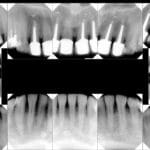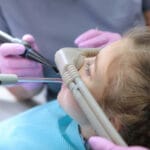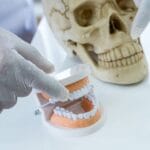Thumb sucking is a common childhood comfort. While natural in infants and toddlers, prolonged thumb sucking can impact dental development. This guide provides parents with a comprehensive understanding of thumb sucking, its effects, and effective strategies for managing the habit.
Understanding the Urge to Suck
Thumb sucking is an instinctive reflex in newborns, providing comfort and self-soothing, often linked to the feeding reflex. It’s a normal developmental phase for toddlers, typically peaking between 18 and 24 months. As children grow, thumb sucking can become a learned behavior, triggered by stress, anxiety, boredom, or simply habit. In adolescents and adults, persistent thumb sucking might suggest deeper emotional or psychological factors, sometimes a form of age regression. Understanding the root cause—whether habit, stress, or emotional needs—is crucial for developing effective solutions.
How Thumb Sucking Affects Teeth
While generally harmless for baby teeth, persistent thumb sucking, especially past the age of four, can significantly affect developing permanent teeth and the overall structure of the mouth. The constant pressure can lead to various dental issues:
Malocclusion (Misaligned Teeth)
- Overbite: The upper front teeth protrude excessively.
- Anterior Open Bite: A gap remains between the upper and lower front teeth even when the mouth is closed.
- Slanted Teeth: Teeth may slant outwards.
- Lower Incisor Tipping: The lower front teeth may tip inwards towards the tongue.
Jaw and Palate Changes
The shape and structure of the jaw and palate (roof of the mouth) can be altered due to prolonged thumb sucking.
Other Oral Health Concerns
- Speech Impediments: Difficulty pronouncing certain sounds may arise.
- Chewing and Swallowing Problems: Misaligned teeth can interfere with proper chewing and swallowing.
- Excessive Wear on Teeth: Premature wear and tear on the teeth can occur.
Factors Influencing Severity
Several factors determine the potential impact of thumb sucking on dental health:
Intensity of Sucking
The intensity of the sucking plays a crucial role. Vigorous, active sucking exerts more pressure on the teeth and jaw compared to passively resting the thumb in the mouth. Imagine the difference between a gentle breeze and a strong gust of wind—both involve air movement, but the latter has a much greater impact.
Duration and Frequency
The longer and more frequently a child sucks their thumb, the higher the likelihood of dental problems.
Age of the Child
Thumb sucking is more likely to affect the developing permanent teeth than the temporary baby teeth. Therefore, intervention becomes particularly important around age six when permanent teeth begin to erupt.
When to Intervene and How
While thumb sucking is usually not a concern with baby teeth, it’s advisable to address the habit by the time a child reaches four or five years old. If thumb sucking persists as permanent teeth emerge around age six, the risk of long-term dental problems increases.
Intervention Methods
Several approaches can help a child break the thumb sucking habit:
- Positive Reinforcement: Create a reward system using sticker charts, small toys, or special activities to celebrate progress. Focus on positive reinforcement rather than punishment.
- Gentle Reminders: Kindly remind your child to stop sucking their thumb when you notice the behavior. Avoid scolding or making them feel ashamed.
- Addressing Underlying Anxiety: If stress or anxiety triggers the habit, help your child identify and manage these feelings through open communication, quality time, and relaxing routines. Consider consulting a child psychologist if necessary.
- Orthodontic Devices: In cases where other methods are unsuccessful and dental changes are significant, a dentist or orthodontist may recommend devices. These can be removable, like retainers, or fixed to the teeth, making thumb sucking less appealing or physically difficult.
Thumb Sucking vs. Pacifier Use
Many parents wonder whether thumb sucking is preferable to pacifier use. While both habits can affect dental development if prolonged past age four, pacifiers are often easier to wean from as parents have more control over their usage. Pacifiers can also be sterilized, unlike thumbs. Additionally, pacifier use has been linked to a lower risk of Sudden Infant Death Syndrome (SIDS). However, there’s no definitive “better” choice—it depends on the individual child and family circumstances. Consulting a pediatrician or pediatric dentist is always recommended.
Long-Term Effects and Importance of Early Intervention
Untreated thumb sucking can lead to more serious dental problems requiring extensive orthodontic treatment—braces, retainers, or even surgery—later in adolescence or adulthood. [https://www.lolaapp.com/Are you curious about the changing practices in dental sedation? Discover the reasons behind why don’t dentists use nitrous oxide anymore and explore modern alternatives for anxiety-free dental procedures.] Beyond the physical aspects, misaligned teeth can impact a child’s self-esteem and confidence. Early intervention not only promotes proper dental development but also supports a child’s overall well-being.
Consulting Your Dentist
If you have any concerns about your child’s thumb sucking, consult their dentist. They can assess your child’s specific situation, provide personalized advice, and recommend the most appropriate course of action. Regular dental checkups and early intervention are crucial for a healthy, happy smile.
- Unlock Elemental 2 Secrets: Actionable Insights Now - April 2, 2025
- Lot’s Wife’s Name: Unveiling the Mystery of Sodom’s Fall - April 2, 2025
- Photocell Sensors: A Complete Guide for Selection and Implementation - April 2, 2025
















